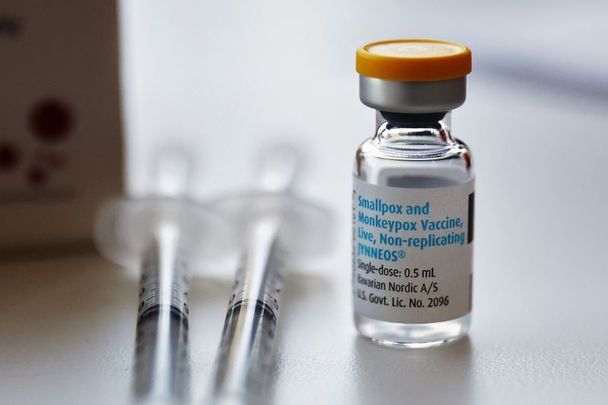Ireland’s Health Service Executive (HSE) announced on Wednesday, August 17 that some people who are at high risk of contracting monkeypox will be offered a vaccine against the disease in the next few weeks.
The HSE said it is widening the vaccination process and is implementing the most recent National Immunisation Advisory Committee (NIAC) advice, which is to vaccinate people at risk before they are exposed to the virus.
Ireland's Health Protection Surveillance Centre (HPSC) said on August 17 that it had been notified of 113 confirmed cases of monkeypox in Ireland.
The HSE said on Wednesday that it sought the advice and guidance of clinical and ethical experts to develop a plan for the initial offer of the limited supply of vaccines currently available. The HSE has also engaged closely over the last number of weeks with the advocacy and support groups to seek their input into the plan.
The HSE estimates that around 6,000 people in Ireland may be at heightened risk of monkeypox infection. Current vaccine supplies will allow vaccination for around 10% of these individuals in the first phase of the vaccine rollout. The HSE has developed a process of prioritizing people for vaccination.
At this time, supplies of vaccine in Ireland and in the EU are low and limited. Ireland, along with other EU countries, is actively exploring options to increase its medium to long-term supply of vaccines.
Based on current indications in relation to global supplies of vaccines, the second phase of vaccine rollout in Ireland is likely to commence later this year and into next year. To date, the HSE has been offering vaccine to those who are close-contacts of cases of monkeypox following assessment by public health, and these people have been contacted and invited for vaccination.
Given the current limited vaccine supply, and following detailed clinical discussions, the HSE will prioritize the vaccine for gbMSM [gay, bisexual, or other men who have sex with men] and transgender people who have had a notification to the HSE’s Infectious Disease Monitoring system, known as CIDR, of early infectious syphilis (EIS) between December 2021 and July 2022.
As part of the HSE prioritization process, a detailed and pragmatic analysis was undertaken which identified this group as including some of those at the highest risk, apart from close contacts of a confirmed case. The HSE reviewed UK data on monkeypox cases and also included learning from programmes recently established in other countries. This group is being prioritized because the nature of the spread of syphilis is similar to that of monkeypox, and syphilis also disproportionately affects gbMSM when compared to other STIs. In addition, the majority of these patients are diagnosed through sexual health clinics which means they people can be more quickly identified and invited for vaccination. People in this group will therefore be prioritized in the first phase of the Monkeypox vaccinations process.
The HSE is working closely with Infectious Disease and Genitourinary Medicine Consultants and the clinical teams in STI clinics around the country to quickly put a process in place to identify and call forward these people for vaccination. In this first phase of the pre-exposure vaccination programme, the STI teams will offer approximately 600 people, two doses of the vaccine – 28 days apart as per the NIAC guidelines. Services will begin to contact these people directly in the coming days and it is expected that people identified will receive the vaccine over the coming weeks. The confidentiality of these individuals will be protected.
Separately, the HSE will ensure that it maintains a supply of vaccine which will be available for those intermediate and high-risk contacts of a confirmed case.
Monkeypox does not spread easily between people and can affect anyone, regardless of their sexual orientation or gender. However, by far the biggest risk of spread between people is through close physical contact, including sexual contact and close contact with household members. Vaccination with monkeypox vaccine does not guarantee that a person cannot become infected and those who are vaccinated should continue to be alert to the signs of monkeypox infection.
Currently notified cases of monkeypox in Ireland are in people who self-identify as gbMSM. As the virus spreads through close contact, the HSE is advising those who self-identify as gbMSM to be alert to any unusual rashes or vesicular lesions on any part of their (or their partner’s) body, especially their genitalia. If they do notice any such changes, they should contact their local STI Clinic or their General Practitioner (GP) for advice.
The HSE will continue to seek advice from NIAC, WHO, ECDC, and UK-based colleagues.
A list of public STI services is available on the HSE’s Sexual Wellbeing website. Further information on monkeypox infection can be found on the HPSC website.




Comments